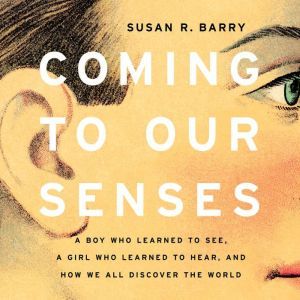

Coming to Our Senses
A Boy Who Learned to See, a Girl Who Learned to Hear, and How We All Discover the World
Author: Susan R. Barry
Narrator: Rengin Altay
Unabridged: 6 hr 56 min
Format: Digital Audiobook Download
Publisher: Basic Books
Published: 06/08/2021
Categories: Nonfiction, Psychology, Cognitive Neuroscience & Cognitive Neuropsychology, Science, Life Sciences, Biography & Autobiography
Includes:
Bonus Material
![]()
Synopsis
We think of perception as a passive, mechanical process, as if our eyes are cameras and our ears microphones. But as neurobiologist Susan R. Barry argues, perception is a deeply personal act. Our environments, our relationships, and our actions shape and reshape our senses throughout our lives. This idea is no more apparent than in the cases of people who gain senses as adults. Barry tells the stories of Liam McCoy, practically blind from birth, and Zohra Damji, born deaf, in the decade following surgeries that restored their senses. As Liam and Zohra learned entirely new ways of being, Barry discovered an entirely new model of the nature of perception. Coming to Our Senses is a celebration of human resilience and a powerful reminder that, before you can really understand other people, you must first recognize that their worlds are fundamentally different from your own.

